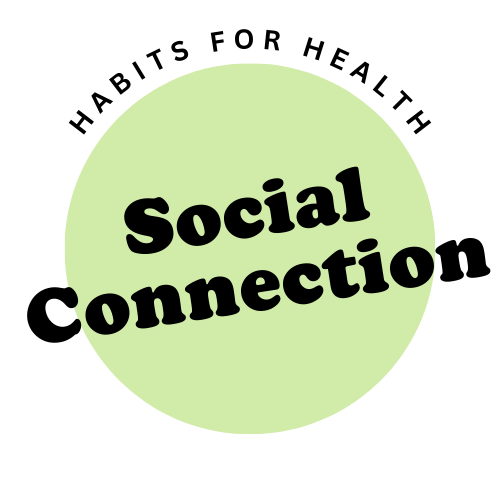Social Connection
Social connections are vital for emotional and physical health. Strong relationships can help reduce stress, improve mental health, and increase longevity. However, building and maintaining these connections can be challenging in our busy lives.
Why Social Connection Matters
- Mental Health: Strong social ties are linked to lower rates of anxiety and depression. They provide emotional support, which can help buffer against stress.
- Physical Health: Social connections can improve physical health by promoting healthy behaviors and providing support during tough times. They can also boost immune function and decrease the risk of chronic diseases.
- Longevity: Studies have shown that people with strong social connections live longer, healthier lives.
Building and maintaining relationships is essential for a healthy and fulfilling life. Our social connection session helps make this easy and achievable by focusing on several key areas:
- Identifying Social Networks: Map out your existing social networks to see where you can strengthen connections and build new ones.
- Creating Opportunities for Connection: Find ways to meet new people and strengthen existing relationships.
- Working with Healthcare Professionals: Discover how to best collaborate with healthcare professionals to support your health and well-being.
- Community Connector Training: Learn how to become a community connector, helping others build social connections and fostering a supportive community.
And Most Importantly:
- Learning Tools for Breaking Long-Term Social Goals Down into Small, Achievable, and Sustainable Steps: Implement small changes that can lead to more meaningful connections over time.
Tiny Habits
Tiny habits are a behaviour change that focus on creating small, easy-to-implement habits that can lead to significant long-term changes in behaviour. Below we have made some suggestions you may like to try.
- Tiny Habit 1: Reach Out to One Person Each Day Send a message or call a friend or family member each day to stay connected.
- Tiny Habit 2: Join a Group or Club Participate in a group activity that interests you, such as a book club, sports team, or hobby group.
- Tiny Habit 3: Volunteer in Your Community Volunteering is a great way to meet new people and contribute to your community.
- Tiny Habit 4: Practice Active Listening When talking to others, practice active listening by paying full attention and responding thoughtfully.
- Tiny Habit 5: Plan Regular Social Activities Schedule regular get-togethers with friends or family, such as weekly dinners or monthly outings.

